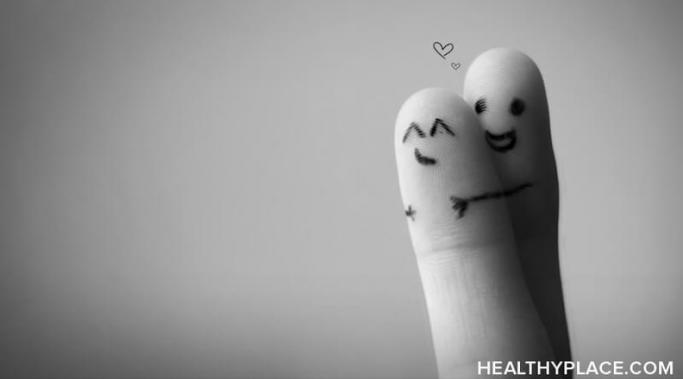No one likes to be rejected. Unfortunately, lesbian, gay, bisexual, transgender and questioning (LGBTQ) people experience a lot of rejection and oppression that lead to depression and other mental illnesses. As a pansexual, I have experienced my fair share of biphobia and homophobia in the past. While it certainly isn’t easy or fun to talk about, raising awareness is the only way of abolishing discrimination towards the LGBTQ community and reduce the rejection queer people face and their depressions.
LGBT Stigma
Have you ever tried being something that you’re not? I think it’s safe to say that all of us have gone through this at some point in our lives. It makes us feel as if we are a fake, and that we’re being untrue to ourselves. It may also lead to deep depression and low self-esteem, especially when it comes to lesbian, gay, bisexual, transgender, or questioning (LGBTQ) individuals. Those who identify as LGBTQ have a higher chance of self-harm, substance abuse, and eating disorders, for example, which are all linked to depression.
As a person who identifies as pansexual, I've met my fair share of ignorance and discrimination when it comes to my sexuality. I have rarely seen positive depictions of bisexual people; instead, we are seen as chronic cheaters who have sex with anyone. This is extremely problematic because it directly affects the bisexual/pansexual community. Even within the lesbian, gay, bisexual, transgender, questioning (LGBTQ) community, bisexuals often meet resistance and ridicule. We don't fit in with the straight world, yet we find isolation within the LGBTQ community, too. Where do we truly belong?
It's an unfortunate reality that people within the lesbian, gay, bisexual, transgender, questioning (LGBTQ) community have a harder time accepting and loving themselves. Society's message toward anyone who is not straight or cisgender (a person whose sex matches their gender) is often negative and harshly critical. Lesbian, gay, bisexual, and transgender people are seen as outcasts and freaks. I am pansexual and I have, in my history, felt like one of those freaks.
tneely
School is back in session in our home and with it has come a torrent of changes not only to our daily routine, but also in our relationships and associations. For my 3 daughters; a senior in high school and two middle-schoolers going back to school is an exciting time as they look forward to meeting a new set of teachers, friends, soccer coaches, etc. However, for many LGBT families, going back to school can mean anxiously making decisions about how out to be in the school environment, if at all.
Given how heated the international debate about same-sex marriages (and the families we create) are, it is not without reason that as LGBT parents, we may worry about the impact coming out in our child’s school will have.
tneely
It was the summer of 2010 and after 4 years of coming out, dating and gradually growing closer as a couple, my partner Tamiko and I were both joyously and anxiously planning for our upcoming commitment ceremony that autumn. We were also looking forward to blending our families and starting a new chapter of life together.
tneely
Common wisdom and social research both tell us that accepting who we are and being open about our sexual identity brings mental health benefits, despite the negative consequences we may experience for doing so. Many of us who have come out LGBT know that coming out as a sexual minority is risky and the consequences are real, particularly in the workplace. We also know that coming out is not a one time thing. It is a never ending process of interacting with others while trying to remain as true to ourselves as possible. Whether it is correcting co-workers who assume the ring on my finger means I have a husband, or telling my boss the woman in the picture frame isn't my sister, we are always making a moment by moment decision about disclosing who we are.
tneely
It’s no secret that those of us in LGBT relationships tend to have strong emotional attachments with our partners, particularly long-term partners. While this can be a wonderful experience in a relationship with healthy boundaries between “self” and “other”, strong emotional attachments can become maddening when codependency is an issue.
Anyone who has spent any time in the LGBT community may have heard comments like: “Lesbians never break up.” and “Gay men never let go.” While this has been a widely accepted idea often used to stereotype our relationships as dysfunctional, research is showing that there is some truth to these statements. Specifically; that women in same-sex relationships tend to remain connected and intertwined in each others lives long after break-up.
tneely
This time of year, everyone but me seems to be in the “New Year, New Me” spirit. Sure, the phrase is catchy enough; but I like who I am just fine and I have no interest in continuously obsessing about my weaknesses, failures and limitations. For me, self-acceptance is the way to grow.
On the surface, I don’t see anything wrong with having the desire to grow and improve yourself. And I know that the desire to be a better you doesn’t necessarily mean that you don’t like who you are at the moment. But for those of us struggling with self-acceptance, “self-improvement” can become just another hammer to beat ourselves over the head with.








